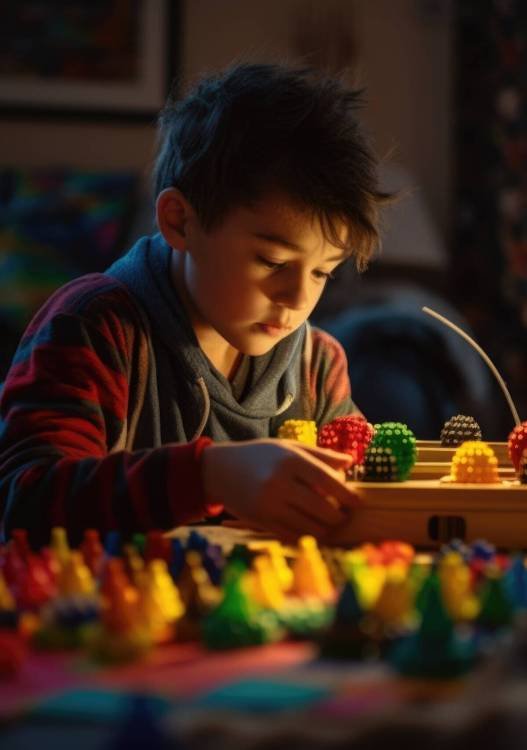Competency Based Learning
Rekindling Purposeful Education
“Education is not the filling of a pail, but the lighting of a fire.”
This ancient wisdom echoes louder than ever today—especially in a world that demands not just knowledgeable minds, but capable hearts, ethical choices, and purposeful actions.
The National Education Policy 2020 envisions a transformative shift: from rote memorization to real mastery, from syllabus completion to skill cultivation, from marks to meaning. At Curriculture, we bring this vision to life through Competency-Based Learning (CBL) and Competency-Based Assessment (CBA)—where learning is not a checklist, but a journey of becoming. This transformative approach honors the individuality of each learner while equipping them with real-life skills, deep understanding, and a lifelong love for learning.
What is Competency-Based Learning (CBL)?
CBL is a learner-centered approach where the emphasis is on mastering specific, measurable competencies rather than simply completing a textbook or syllabus. A competency is more than just knowledge—it is the integrated ability to apply knowledge, skills, values, and attitudes in real-world situations. Under CBL:
Learning is personalized: Every learner progresses at their own pace, based on their mastery—not age or grade.
Curriculum is relevant and purposeful: Learning is rooted in real-life contexts and encourages inquiry, collaboration, and creativity.
Teachers become learning designers: They facilitate deep learning journeys instead of delivering standard lectures.
What We Nurture
Critical Thinking & Problem Solving – assessed through case studies, open-ended scenarios, and real-world problem-solving projects.
Creativity & Innovation – demonstrated through design challenges, storytelling, art-integrated tasks, and model-making.
Collaboration & Teamwork – fostered via group tasks, peer-feedback loops, and interdependent goal-setting.
Communication (Verbal & Non-verbal) – practiced and assessed through presentations, debates, storytelling, and reflective journaling.
Digital & Media Literacy – integrated via research-based assignments, data analysis, and responsible digital engagement.
Ethical Reasoning & Empathy – cultivated through role plays, dilemmas, and community engagement.
Self-awareness & Lifelong Learning – built through journaling, learner portfolios, and self-assessment tools.
CBL ensures that education is not just about knowing the “what,” but also understanding the “why” and mastering the “how.”


What is Competency-Based Assessment (CBA)?
CBA redefines assessment from a one-time, high-stakes event to a continuous, multidimensional process that captures what the learner knows, does, feels, and values. It focuses on growth, reflection, and real-world application, rather than scores and ranks. Key principles of CBA:
Holistic and formative: Emphasizes observation, dialogue, peer/self-assessment, and feedback.
360-degree and inclusive: Engages learners, teachers, parents, and even peers in the assessment process.
Rubrics over report cards: Uses descriptive rubrics to track progress in domains like critical thinking, collaboration, empathy, and communication.
This approach honors the diversity of learners and nurtures intellectual, emotional, and ethical dimensions of growth.
NEP 2020 & the Shift to CBL and CBA
The National Education Policy 2020 marks a paradigm shift from content-driven education to competency-driven education. It envisions a system that is flexible, inclusive, and learner-centric, where:
Learning outcomes are clearly defined and measurable
Assessments move away from rote recall towards real-life application
Pedagogies promote experiential and integrated learning
Technology enables personalized learning journeys
Teachers are empowered as curriculum designers and mentors
This transformation supports the policy’s broader vision to build foundational literacy and numeracy, develop 21st-century skills, and instill constitutional values and cultural awareness—thus shaping well-rounded, ethical, and capable citizens.
Our Role: Designing for Growth, Not Grades
At Curriculture, we are committed to bringing this vision of NEP 2020 to life. We partner with schools and educators to design and implement Competency-Based Learning frameworks and Assessment models that are grounded in experiential learning, enriched by Indian Knowledge Systems, and aligned with global best practices. Our work spans:
Developing customized rubrics and growth maps for formative and summative evaluations.
Training educators to become facilitators of inquiry and reflection, enabling them to assess beyond the worksheet.
Creating tools for 360-degree assessment, involving self, peer, parent, and teacher feedback.
Designing and delivering real-world assessment tasks, projects, and portfolios that reflect true learner progress.
Blending tradition and technology to make assessments both meaningful and scalable.
We believe that every learner is unique, and our assessment frameworks are built to honor this uniqueness by focusing on progress over performance and potential over pressure.
Rooted in Bharatiya Wisdom, Aligned with Global Goals
Long before modern pedagogies coined the term “competency,” Indian education systems practiced it through the Gurukul system, where students learned by doing, reflecting, and mastering skills through lived experiences. Whether it was learning governance through Rajadharma, sustainability through Ayurveda, or logic through Nyaya—learning was competency-driven, deeply rooted in Dharma, experiential knowledge, and purpose.
CBL and CBA thus represent not only a global best practice but also a homecoming to India’s timeless educational ethos, beautifully woven into the tapestry of NEP 2020—and carried forward with renewed purpose by Curriculture.
Reimagining Classrooms, Empowering Learners
In a CBL-driven classroom:
- A mathematics lesson might involve designing a budget for a real-life scenario.
- A science module might involve solving local environmental problems.
- A history project may explore the values of ancient India and their relevance today.
Learning becomes joyful. Assessment becomes meaningful. And education becomes transformative.
“CBL and CBA are not reforms. They are a renaissance.”
A renaissance of purpose, equity, and soulful learning.
At Curriculture, we invite educators, schools, and institutions to join us in reimagining assessments—not as end-points, but as mirrors of growth. Together, let us nurture a generation of learners who are competent, compassionate, and future-ready.

